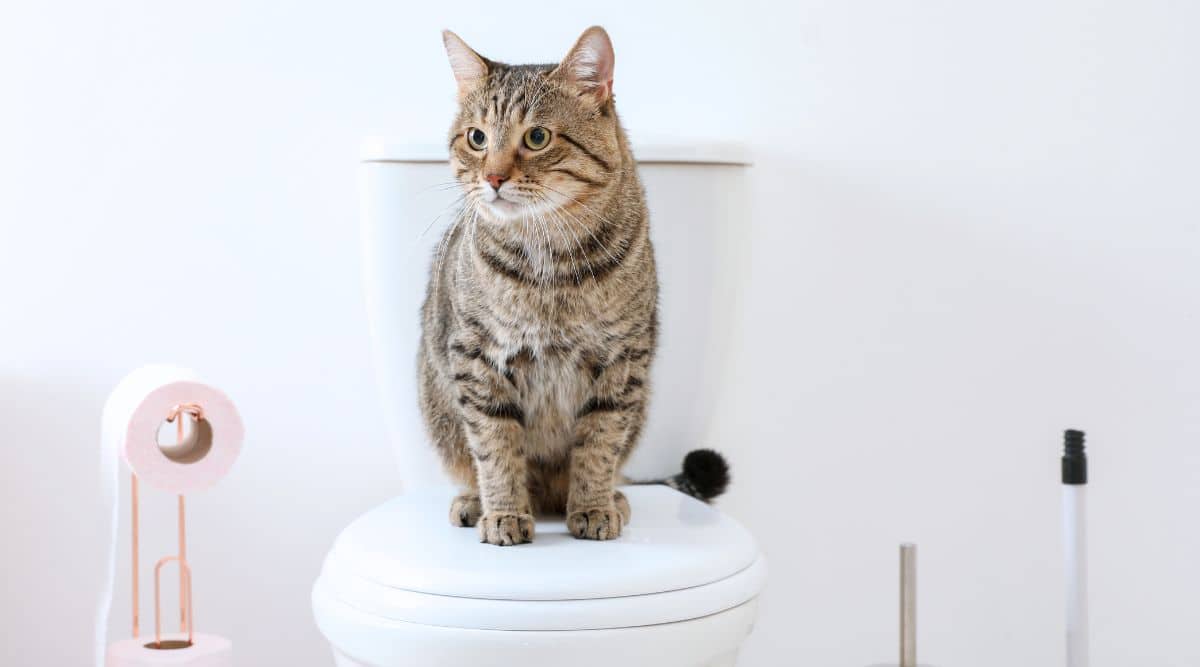Reasons You Should Avoid Flush Cat Poop Down Your Toilet - Important Facts
Reasons You Should Avoid Flush Cat Poop Down Your Toilet - Important Facts
Blog Article
What are your concepts about Can You Flush Cat Poo or Litter Down the Toilet??

Intro
As feline proprietors, it's essential to bear in mind exactly how we deal with our feline buddies' waste. While it might appear convenient to purge pet cat poop down the bathroom, this technique can have detrimental consequences for both the setting and human health.
Alternatives to Flushing
Thankfully, there are much safer and a lot more responsible means to take care of cat poop. Take into consideration the following choices:
1. Scoop and Dispose in Trash
The most usual technique of dealing with pet cat poop is to scoop it into an eco-friendly bag and throw it in the garbage. Make sure to utilize a devoted trash scoop and deal with the waste without delay.
2. Use Biodegradable Litter
Select biodegradable feline clutter made from materials such as corn or wheat. These clutters are eco-friendly and can be safely taken care of in the trash.
3. Bury in the Yard
If you have a backyard, consider hiding pet cat waste in a designated location far from vegetable yards and water sources. Make sure to dig deep adequate to prevent contamination of groundwater.
4. Set Up a Pet Waste Disposal System
Invest in an animal garbage disposal system particularly made for feline waste. These systems use enzymes to break down the waste, minimizing smell and ecological impact.
Health and wellness Risks
Along with ecological concerns, flushing feline waste can likewise posture health dangers to human beings. Pet cat feces might contain Toxoplasma gondii, a parasite that can trigger toxoplasmosis-- a possibly extreme illness, especially for expecting ladies and individuals with weakened body immune systems.
Environmental Impact
Purging feline poop introduces dangerous virus and parasites into the water system, posturing a substantial threat to marine ecosystems. These contaminants can adversely influence aquatic life and concession water top quality.
Verdict
Liable pet possession expands past giving food and sanctuary-- it also involves proper waste management. By avoiding purging pet cat poop down the commode and selecting alternate disposal techniques, we can reduce our environmental footprint and safeguard human health.
Why Can’t I Flush Cat Poop?
It Spreads a Parasite
Cats are frequently infected with a parasite called toxoplasma gondii. The parasite causes an infection called toxoplasmosis. It is usually harmless to cats. The parasite only uses cat poop as a host for its eggs. Otherwise, the cat’s immune system usually keeps the infection at low enough levels to maintain its own health. But it does not stop the develop of eggs. These eggs are tiny and surprisingly tough. They may survive for a year before they begin to grow. But that’s the problem.
Our wastewater system is not designed to deal with toxoplasmosis eggs. Instead, most eggs will flush from your toilet into sewers and wastewater management plants. After the sewage is treated for many other harmful things in it, it is typically released into local rivers, lakes, or oceans. Here, the toxoplasmosis eggs can find new hosts, including starfish, crabs, otters, and many other wildlife. For many, this is a significant risk to their health. Toxoplasmosis can also end up infecting water sources that are important for agriculture, which means our deer, pigs, and sheep can get infected too.
Is There Risk to Humans?
There can be a risk to human life from flushing cat poop down the toilet. If you do so, the parasites from your cat’s poop can end up in shellfish, game animals, or livestock. If this meat is then served raw or undercooked, the people who eat it can get sick.
In fact, according to the CDC, 40 million people in the United States are infected with toxoplasma gondii. They get it from exposure to infected seafood, or from some kind of cat poop contamination, like drinking from a stream that is contaminated or touching anything that has come into contact with cat poop. That includes just cleaning a cat litter box.
Most people who get infected with these parasites will not develop any symptoms. However, for pregnant women or for those with compromised immune systems, the parasite can cause severe health problems.
How to Handle Cat Poop
The best way to handle cat poop is actually to clean the box more often. The eggs that the parasite sheds will not become active until one to five days after the cat poops. That means that if you clean daily, you’re much less likely to come into direct contact with infectious eggs.
That said, always dispose of cat poop in the garbage and not down the toilet. Wash your hands before and after you clean the litter box, and bring the bag of poop right outside to your garbage bins.
https://trenchlesssolutionsusa.com/why-cant-i-flush-cat-poop/

As a fervent person who reads on How to Dispose of Cat Poop and Litter Without Plastic Bags, I was thinking sharing that excerpt was a smart idea. Do you know about someone else who is looking into the niche? Please feel free to promote it. Thank you for taking the time to read it.
Suggested Site Report this page